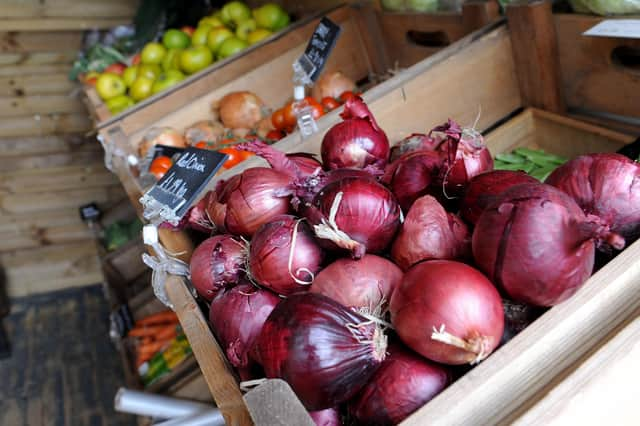Scotland's 'natural economy' worth £29 billion claims new report


Scotland’s so-called ‘natural economy’ adds £29.1 billion to the country’s economy making up more than a fifth of its total a new report commissioned by Scotland’s Rural College has found.
The section of the economy is defined as including the tourism, food and drink, fishing and aquaculture, agriculture, energy and forestry sectors and supports around 223,000 jobs in Scotland.
Advertisement
Hide AdAdvertisement
Hide AdHowever, much of the money is tied up in the energy sector including fossil fuels with the total gross value added (GVA) dropping to £8.2 billion once the energy sector is excluded.
The report also highlights that the sector contributes much less per job than the national average once the energy sector is excluded from the calculations.
It states that while the average GVA per job in the natural economy sits at roughly £100,000, it drops to just £37,000 once the energy sector is excluded, 29 per cent lower than the national average.
Agriculture, with £19,000 GVA per job, and tourism, with £18,000 GVA per job, are the main drivers of this due to “relatively high levels of employment”.
The report also suggests the natural economy is at risk of being affected by the fluctuation in the fossil fuels industry, given that the GVA of the sector has dropped by 18 per cent between 2008 and 2018.
However, once the energy sector is excluded, all of the sectors combined have seen growth of 25 per cent in the same period.
The report, written by BiGGAR Economics, a consultancy firm based in Edinburgh, states: “The natural economy is an area of comparative advantage for Scotland, which can also be a critical plank of the national recovery and renewal strategy supported by the best of Scotland’s universities and research institutes.
"Around 14 per cent (48 per cent, if energy was excluded) of the GVA generated by the natural economy was attributable to the food and drink sector. It was also estimated that nature-inspired tourism added a further £1.7 billion GVA.
Advertisement
Hide AdAdvertisement
Hide Ad"Agriculture (four per cent), fishing and aquaculture (one per cent), mining (one per cent) and logging, forestry and wood manufacture (three per cent) accounted for the remaining nine per cent of the natural economy’s GVA. These four sub-sectors accounted for a third of the sector, if energy was not included.
"Between 2008 and 2018, the size of the natural economy shrunk by 18 per cent. This was mostly driven by a decline in the GVA generated by the energy sector.
“Aside from the value generated by the food and drink sector, which remained relatively constant across the period, the other sectors comprising the natural economy experienced growth. For instance, the value of tourism increased by 60 per cent over the period and that of agriculture by 39 per cent.”
Professor Wayne Powell, chief executive and principal of Scotland’s Rural College, said: “This would be an important report at any time, but in showing how we can build on the comparative advantage that Scotland has in the area of natural economy, it is a vital contribution to our economic, social and environmental recovery from the Covid-19 crisis.
“As this report makes clear, a more integrated approach to developing the sectors that make up the natural economy can and will enhance Scotland’s overall performance, not least by driving up productivity and boosting resilience.
“Such an approach will require a new model of collaboration to deliver the education, research and innovation needs of the natural economy. SRUC stands ready to play our full part in such a collaborative effort, and we look forward to publishing further research for wide debate and discussion about how this exciting vision can be realised.”
A message from the Editor:
Thank you for reading this story on our website. While I have your attention, I also have an important request to make of you.
The dramatic events of 2020 are having a major impact on many of our advertisers - and consequently the revenue we receive. We are now more reliant than ever on you taking out a digital subscription to support our journalism.
Advertisement
Hide AdAdvertisement
Hide AdSubscribe to scotsman.com and enjoy unlimited access to Scottish news and information online and on our app. Visit https://www.scotsman.com/subscriptions now to sign up.
By supporting us, we are able to support you in providing trusted, fact-checked content for this website.
Joy Yates
Editorial Director
Comments
Want to join the conversation? Please or to comment on this article.